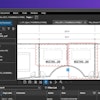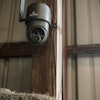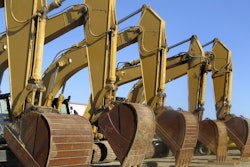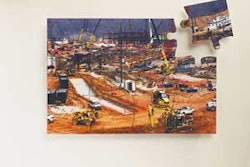You hear it from dealers, manufacturers and contractors — rental is becoming a more important part of a contractor’s business plan. Having a yard full of equipment does not seem to carry the same weight as before. And if I had to bet, I doubt it ever will again. So, there you sit. You are thinking about how to make better use of rental, or whether rental provides any benefits at all. And if you decide to take a new direction to use more rental, how do you go about it?
It’s not something you can do overnight. It is a major decision that requires a plan and some buy-in to make it work. It also helps to have some friendly dealers and rental companies involved.
Study Your Options
No matter how much you think about the rental issue, you will come back to one point: utilization. Having equipment available when you need it is the key to your success. Without it, jobs come to a standstill along with your bank account.
Study your equipment inventory, equipment needs, actual utilization and the rental availability of specific units. You also need to draft a work schedule to see when certain types of equipment are needed. It is entirely possible there are certain niche pieces that are not plentiful as rental units. Thus, you will have to own and maintain these units to have adequate access to them.
Once you identify units you definitely need to own, it’s time to move on to units you can rent. You go through the same process, then search for rental outlets that can adequately serve your needs -— assuming this means the equipment will be there when you need it. You may have to work out some deals, but most rental operators will work with you to keep any downtime to a minimum.
Even if you had to rent the unit for a three- or four-month period to guarantee access, it may be better than renting it on and off for four months.
A good point about rental is your ability to return the equipment and forget it once you’re done -— no paying for it, no maintaining it, no insurance costs, no obsolescence issues, no moving it, no protecting it. Once you use rental and see it works -— and know you can get what you need when you need it — I’m betting you would do it again in a heartbeat.
Tough Choices
You have identified what you really need to own. You have identified the types of equipment readily available in your market, along with sources that supply it. You have met with rental sources and worked out availability and pricing. You have determined that the fixed costs of rental are less than the cost to own and maintain a unit yourself. And, most likely, you have made yourself more profitable. That’s not bad for a couple hours of effort.
Now we get to the tough part. You have to part with equipment and maybe even some people.
With equipment prices firming up, it’s a good time to dispose of seldom-used equipment (low utilization) that can be replaced with rental units. Or you may find that used units with some equity built in can better serve as trade-ins for new equipment, especially for niche units you have to own.
Keep in mind that just because you own certain units, it doesn’t mean you have to bear the burden of maintaining them. New preventive maintenance programs are available from your dealer. With the ability to track location and hours, a dealer can schedule maintenance as part of a low-cost ownership program.
Good mechanics are hard to find. But once you have disposed of used units and have a prepaid preventive maintenance program in place, you won’t have the same need for your own mechanics. Many of you will not be able to justify keeping several mechanics on staff. Others will need to keep a core group of mechanics in place, especially if they work in environments where breakdowns are frequent.
Financial Rewards
Using rentals also helps with both the bidding and accounting process. The rental rate covers nearly all expenses associated with the equipment except for day-to-day operating expenses. Rental makes it easy to bid a job and account for equipment usage. You can even get the rental company to bill on a job-by-job basis as long as you feed them the information they need.
So if this rental stuff works right, you have:
A well-planned rental program can do all of this. For many of you, there is a fit for rental in your business strategy. For some of you, it will take some effort to get there. For a few of you, rental will not be the answer.
No matter where you fall, rental is worth a look to see if it works for you. Get out that equipment list and get started.

















